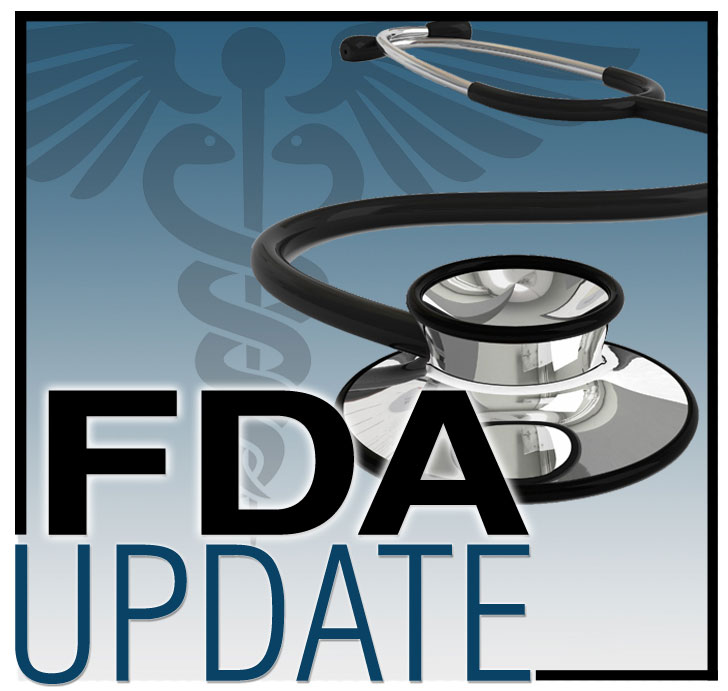
On November 16, 2017, the U.S. Food and Drug Administration (FDA) approved emicizumab-kxwh (Hemlibra®, Genentech, Inc.) for routine prophylaxis to prevent or reduce the frequency of bleeding episodes in adult and pediatric patients with hemophilia A (congenital factor VIII deficiency) with factor VIII inhibitors.
Approval was based on data from two clinical trials—an adult and adolescent trial (HAVEN 1) and a pediatric trial (HAVEN 2). HAVEN 1 (NCT02622321) was a randomized, multicenter, open-label, phase 3 trial in 109 adult and adolescent males (aged 12 to 75 years and >40 kg) with hemophilia A with FVIII inhibitors who previously received either episodic (on-demand) or prophylactic treatment with bypassing agents. Patients on prior episodic treatment were randomized 2:1 to weekly emicizumab-kxwh prophylaxis (3 mg/kg once weekly for the first 4 weeks followed by 1.5 mg/kg once weekly, thereafter) or no prophylaxis. Patients randomized to no prophylaxis could switch to emicizumab-kxwh prophylaxis after 24 weeks. For patients receiving emicizumab-kxwh prophylaxis, the annualized bleeding rate (ABR) requiring treatment with coagulation factors was 2.9 (95% CI; 1.7, 5.0) compared with 23.3 (95% CI: 12.3, 43.9) for patients not receiving prophylaxis corresponding to an 87% ABR reduction (95% CI: 72.3%, 94.3%), p<0.0001. In addition, improvements in patient-reported hemophilia-related symptoms and physical functioning in patients receiving emicizumab-kxwh prophylaxis were observed.
HAVEN 2 (NCT02795767) was a single-arm, multicenter, open-label, clinical trial in pediatric males (age < 12 years, or 12-17 years who weigh <40 kg) with hemophilia A with FVIII inhibitors. Patients received emicizumab-kxwh prophylaxis at the dose and schedule described above. In 23 patients evaluated at the interim analysis, ABR for treated bleeds was 0.2 (95% CI: 0.1, 0.6). ABR for all bleeds was 2.9 (95% CI: 1.8, 4.9).
The most common adverse reactions (occurring in ³ 10% of patients taking emicizumab-kxwh) are injection site reactions, headache, and arthralgia. Cases of thrombotic microangiopathy and thrombotic events were reported when on average a cumulative amount of >100 U/kg/24 hours of activated prothrombin complex concentrate (aPCC) was administered for 24 hours or more to patients receiving emicizumab-kxwh prophylaxis. The prescribing information contains a boxed warning to monitor for thrombotic microangiopathy and thrombotic events when aPCC is administered. If symptoms occur, aPCC should be discontinued and emicizumab-kxwh should be suspended.
The recommended dose of emicizumab-kxwh is 3 mg/kg by subcutaneous injection once weekly for the first 4 weeks, followed by 1.5 mg/kg once weekly.
Full prescribing information is available.
Emicizumab-kxwh was approved 3.3 months prior to the assigned regulatory action date. FDA granted Priority Review, Breakthrough Therapy designation, and Orphan Drug designation for this indication. A description of FDA expedited programs is in the Guidance for Industry: Expedited Programs for Serious Conditions-Drugs and Biologics.
Healthcare professionals should report all serious adverse events suspected to be associated with the use of any medicine and device to FDA’s MedWatch Reporting System by completing a form online, by faxing (1-800-FDA-0178) or mailing the postage-paid address form provided online, or by telephone (1-800-FDA-1088).
Follow the Oncology Center of Excellence on Twitter @FDAOncology.
Check out recent approvals at the OCE’s new podcast, Drug Information Soundcast in Clinical Oncology (DISCO).
In collaboration with the FDA and as a service to our members, ONS provides updates on recent FDA approvals and other important FDA actions (e.g., updated safety information, new prescribing information) pertaining to therapies for patients with cancer. This allows the agency to inform oncologists and professionals in oncology-related fields in a timely manner. Included in the FDA updates is a link to the product label or to other sites for additional relevant clinical information. In supplying this information, ONS does not endorse any product or therapy and does not take any position on the safety or efficacy of the product or therapy described.





